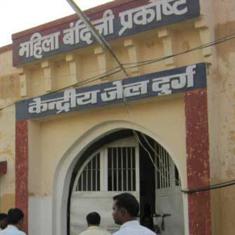The Big Story: Real rates
In the very first review by the newly formed Monetary Policy Committee, the panel decided to cut the repo rate – the key short-term interest rate at which the Reserve Bank of India lends to banks – by 25 basis points to 6.25%, a six-year low. This was not entirely expected. Economists and analysts polled before the monetary policy review were divided, with six out of ten surveyed by the Business Standard expecting a pause in this review and a cut in December. Clearly the MPC, which saw all six members voting for a rate cut, saw something different.
In the announcement of the rate cut and the media interactions that came after, the panel and new RBI Governor Urjit Patel attempted to explain the policy, saying food inflation has surprisingly stayed low, a strong monsoon has raised expectations of good agricultural growth and a sense that the global economy is doing worse than was thought. As a result, the lower interest rates should make credit much cheaper across the system, if banks pass the rate cut onto their customers.
But the first policy since Raghuram Rajan's departure also had some unusual aspects. The RBI offered no forward guidance – although it might be difficult to do that with a new MPC still figuring out its process – and also change the "neutral interest rate" based on which the central bank builds its policy. The neutral interest rate is an economist's tool estimating what actual interest rates would fit into that sweet spot where the economy is growing while inflation remains in check. It's broadly calculated by taking the policy rate, and subtracting inflation.
For a few years now, that neutral rate has been set at between 1.5% and 2%, although since it's partly an academic exercise there isn't always a specific number laid down. In Tuesday's review, this was changed to 1.25% with RBI executive director Michael Patra explaining that the central bank must take into account the fact that neutral rates are declining globally.
But, as Niranjan Rajadhyaksha points out, the RBI has not changed its inflation expectations, with the review in fact saying there are still upside risks. This suggests something else might be behind the lower neutral rate. Despite the positive language about India's economy in the policy review, there are enough concerns in there that the rate cut may not necessarily be a symbol of a more robust economy. Instead the central bank, which is set to be less communicative than under Rajan, could be telegraphing worries that growth, both Indian and global, might not end up being as positive as had been expected.
Political Pickings
- The Indian Express' Praveen Swami has a must-read including eyewitnesses who offered "graphic accounts" of the Indian Army forces across the Line of Control last week, which according to the paper corroborates India's claims but deflates the number of casualties and damage inflicted.
- This comes after Congress leader Sanjay Nirupam called the strikes "fake", while Delhi Chief Minister Arvind Kejriwal asked for evidence of the attacks to send a message to the Pakistanis questioning it.
- The Economic Times also claims there is video evidence of the strikes with the armed forces having given a green-light to the government to release them as necessary.
- The Congress has some unusual conspiracy theories. It thinks its Vice President Rahul Gandhi's flights are being deliberately delayed to prevent him from getting to political rallies on time.
Punditry
- Haseeb Asif in the Huffington Post thinks India and Pakistan can get peace by doing what conservatives have always demanded: Sending each country's liberals to the other side.
- Mir Hilal, the editor of a newspaper that has been banned by the Jammu and Kashmir government, writes in the Indian Express that the state is finding scapegoats to blame the unrest on.
- At war in Kashmir, India and Pakistan wage lunch in Washington, DC, write John Hudson and Siobhan O'Grady in Foreign Policy, telling us about competing events hosted by the High Commissions.
- Prashant Bhushan in The Hindu says only an independent commission that is full-time and not attached to the government can ensure transparency and accountability in judicial appointments.
- "The most enduring fallout of the terrorist attack in Uri and its aftermath may be that relations between India and the United States of America have come of age," writes KP Nayar in the Telegraph.
Don't Miss
Nandini Ramnath writes saying if actors are expected to stay out of politics, so should the rest of the Hindi film industry.
Indian filmmakers who speak against the ban on Pakistani artists are being subjected to the old loyalty test: either you are with us or against us. Nana Patekar drew a connection between speaking out against the ban – as Salman Khan has done – and boosting the morale of troops stationed along the border. Actors are “mere termites” compared to the soldiers who “the biggest heroes in the world”, Patekar said. Actor Anupam Kher has insisted that Pakistani artists condemn the Uri attack.
Should actors share their political opinions with the world at all? After all, readers frequently complain that some movie celebrities are airheads who don’t know the name of their president or the number of states in the country. Filmmaker Vikas Bahl said only half-jokingly said the Hindi film industry is now called upon to voice its views on everything under the sun.










